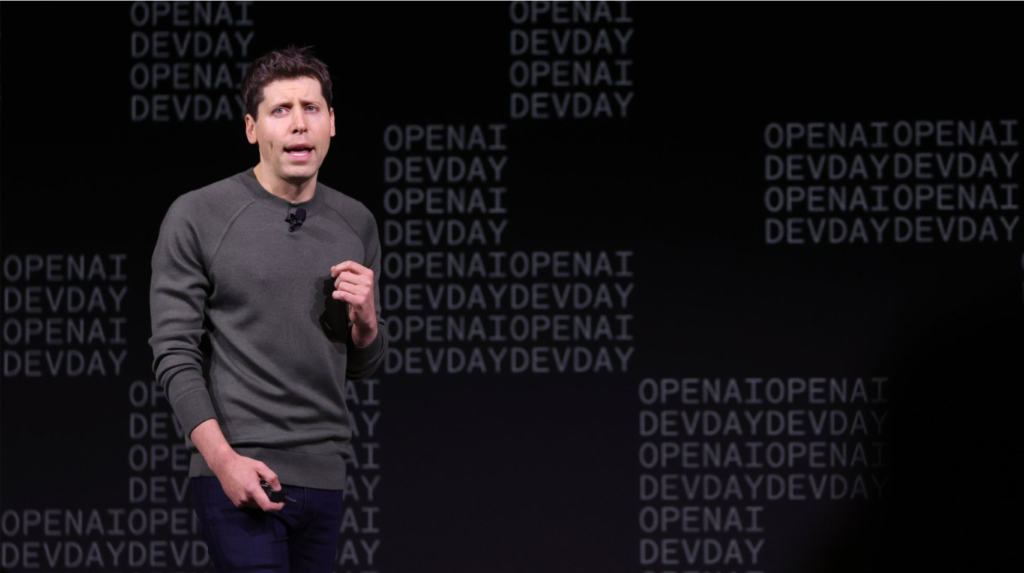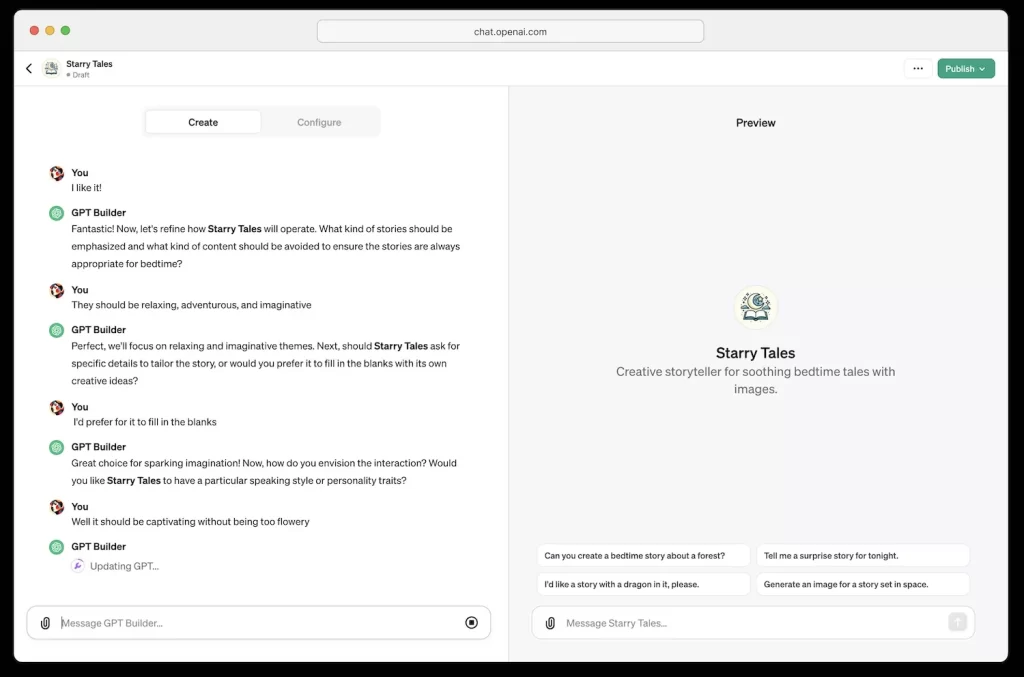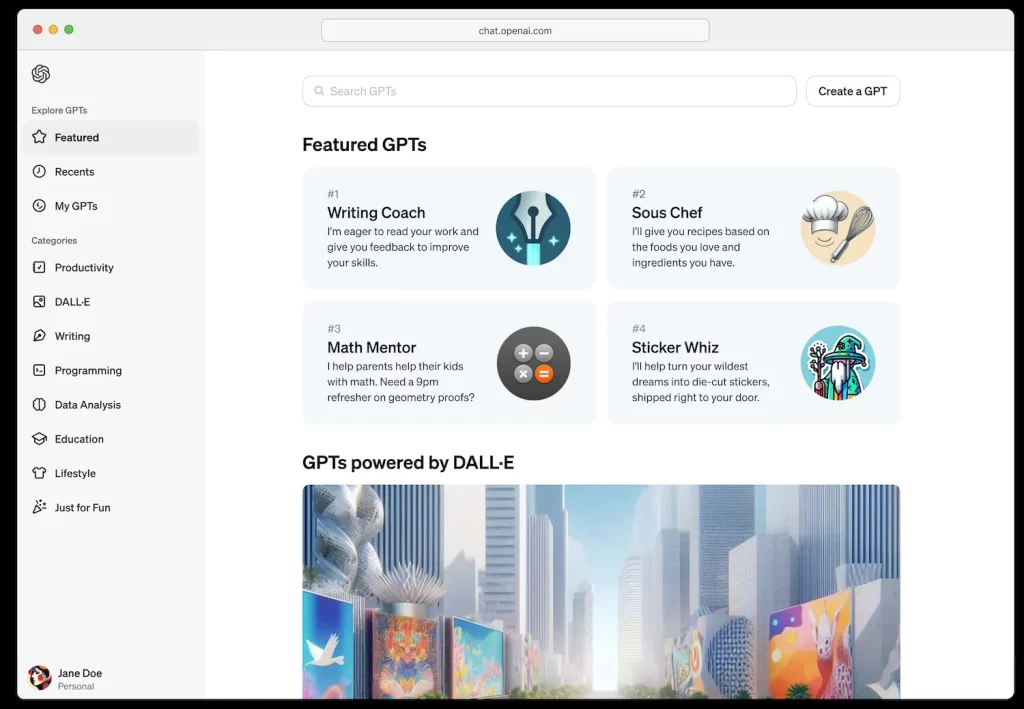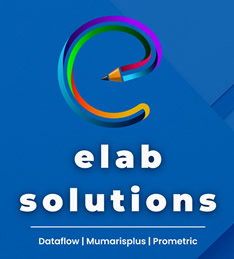In the heart of San Francisco, OpenAI’s inaugural developer conference was a showcase of evolutionary leaps in artificial intelligence. A suite of announcements has set the stage for what can be described as a transformative phase for developers, users, and businesses alike.
ChatGPT: A Century of Millions
Celebrating a year since its inception, ChatGPT has cemented its place as a household AI, surpassing the 100 million weekly users mark. This milestone underscores its status as one of the fastest-growing consumer applications in history. The platform’s utility is further highlighted by the 2 million developers actively engaged in harnessing its API for a myriad of applications.
 Introducing GPT-4 Turbo
OpenAI introduced GPT-4 Turbo, a formidable upgrade to the GPT-4 model, engineered to enhance both text and image processing capabilities. GPT-4 Turbo distinguishes itself with a staggering 128,000 token context window, quadrupling its predecessor’s capacity and sporting an updated knowledge cut-off of April 2023. The pricing structure is designed to encourage broad utilization, making it a compelling option for developers.
Introducing GPT-4 Turbo
OpenAI introduced GPT-4 Turbo, a formidable upgrade to the GPT-4 model, engineered to enhance both text and image processing capabilities. GPT-4 Turbo distinguishes itself with a staggering 128,000 token context window, quadrupling its predecessor’s capacity and sporting an updated knowledge cut-off of April 2023. The pricing structure is designed to encourage broad utilization, making it a compelling option for developers.
 Customizable GPT Instances
In an unprecedented move, OpenAI has democratized the creation of custom GPT models. Users are now empowered to construct specialized GPT instances tailored to their personal or professional needs, all without the necessity of coding skills. For enterprise clients, the offering extends to internal GPTs that leverage OpenAI’s vast knowledge base.
The GPT Store: A Marketplace for Creativity
The upcoming GPT Store promises to be a hub for user-created AI bots, providing a platform for verified builders to showcase and potentially monetize their creations. This initiative follows the trend of compensating creators, an ethos that’s gaining traction in the AI domain.
Customizable GPT Instances
In an unprecedented move, OpenAI has democratized the creation of custom GPT models. Users are now empowered to construct specialized GPT instances tailored to their personal or professional needs, all without the necessity of coding skills. For enterprise clients, the offering extends to internal GPTs that leverage OpenAI’s vast knowledge base.
The GPT Store: A Marketplace for Creativity
The upcoming GPT Store promises to be a hub for user-created AI bots, providing a platform for verified builders to showcase and potentially monetize their creations. This initiative follows the trend of compensating creators, an ethos that’s gaining traction in the AI domain.
 API Expansion: Assistants and DALL-E 3
The Assistants API represents a leap forward for developers aspiring to craft agent-like experiences, ranging from coding assistants to AI-driven travel planning. Concurrently, the availability of the DALL-E 3 API provides creators with the tools to bring text-to-image concepts to life, equipped with robust moderation tools.
Audio API: The Sound of Progress
The launch of the Audio API, with its selection of six distinct voices, marks OpenAI’s foray into the nuanced realm of text-to-speech services. The API opens up new possibilities for creating engaging audio content across various applications.
Copyright Shield: A Commitment to Protect
In a significant move, OpenAI’s Copyright Shield program pledges to defend businesses from intellectual property infringement claims arising from the use of its AI tools. This initiative mirrors a broader industry trend towards indemnification offerings, providing a layer of confidence for enterprises engaging with AI technologies.
Further Innovations and Improvements
OpenAI didn’t stop there; additional announcements included a new collaborative program for custom model development, the simplification of the ChatGPT interface, the introduction of the Whisper large v3 speech recognition model, and the expansion of token limits for GPT-4 users.
In sum, OpenAI’s DevDay event has laid out a vision of an AI-integrated future that is more accessible, creative, and secure. With these developments, OpenAI continues to solidify its role as a catalyst for the next generation of AI applications.
API Expansion: Assistants and DALL-E 3
The Assistants API represents a leap forward for developers aspiring to craft agent-like experiences, ranging from coding assistants to AI-driven travel planning. Concurrently, the availability of the DALL-E 3 API provides creators with the tools to bring text-to-image concepts to life, equipped with robust moderation tools.
Audio API: The Sound of Progress
The launch of the Audio API, with its selection of six distinct voices, marks OpenAI’s foray into the nuanced realm of text-to-speech services. The API opens up new possibilities for creating engaging audio content across various applications.
Copyright Shield: A Commitment to Protect
In a significant move, OpenAI’s Copyright Shield program pledges to defend businesses from intellectual property infringement claims arising from the use of its AI tools. This initiative mirrors a broader industry trend towards indemnification offerings, providing a layer of confidence for enterprises engaging with AI technologies.
Further Innovations and Improvements
OpenAI didn’t stop there; additional announcements included a new collaborative program for custom model development, the simplification of the ChatGPT interface, the introduction of the Whisper large v3 speech recognition model, and the expansion of token limits for GPT-4 users.
In sum, OpenAI’s DevDay event has laid out a vision of an AI-integrated future that is more accessible, creative, and secure. With these developments, OpenAI continues to solidify its role as a catalyst for the next generation of AI applications.
 Introducing GPT-4 Turbo
OpenAI introduced GPT-4 Turbo, a formidable upgrade to the GPT-4 model, engineered to enhance both text and image processing capabilities. GPT-4 Turbo distinguishes itself with a staggering 128,000 token context window, quadrupling its predecessor’s capacity and sporting an updated knowledge cut-off of April 2023. The pricing structure is designed to encourage broad utilization, making it a compelling option for developers.
Introducing GPT-4 Turbo
OpenAI introduced GPT-4 Turbo, a formidable upgrade to the GPT-4 model, engineered to enhance both text and image processing capabilities. GPT-4 Turbo distinguishes itself with a staggering 128,000 token context window, quadrupling its predecessor’s capacity and sporting an updated knowledge cut-off of April 2023. The pricing structure is designed to encourage broad utilization, making it a compelling option for developers.
 Customizable GPT Instances
In an unprecedented move, OpenAI has democratized the creation of custom GPT models. Users are now empowered to construct specialized GPT instances tailored to their personal or professional needs, all without the necessity of coding skills. For enterprise clients, the offering extends to internal GPTs that leverage OpenAI’s vast knowledge base.
The GPT Store: A Marketplace for Creativity
The upcoming GPT Store promises to be a hub for user-created AI bots, providing a platform for verified builders to showcase and potentially monetize their creations. This initiative follows the trend of compensating creators, an ethos that’s gaining traction in the AI domain.
Customizable GPT Instances
In an unprecedented move, OpenAI has democratized the creation of custom GPT models. Users are now empowered to construct specialized GPT instances tailored to their personal or professional needs, all without the necessity of coding skills. For enterprise clients, the offering extends to internal GPTs that leverage OpenAI’s vast knowledge base.
The GPT Store: A Marketplace for Creativity
The upcoming GPT Store promises to be a hub for user-created AI bots, providing a platform for verified builders to showcase and potentially monetize their creations. This initiative follows the trend of compensating creators, an ethos that’s gaining traction in the AI domain.
 API Expansion: Assistants and DALL-E 3
The Assistants API represents a leap forward for developers aspiring to craft agent-like experiences, ranging from coding assistants to AI-driven travel planning. Concurrently, the availability of the DALL-E 3 API provides creators with the tools to bring text-to-image concepts to life, equipped with robust moderation tools.
Audio API: The Sound of Progress
The launch of the Audio API, with its selection of six distinct voices, marks OpenAI’s foray into the nuanced realm of text-to-speech services. The API opens up new possibilities for creating engaging audio content across various applications.
Copyright Shield: A Commitment to Protect
In a significant move, OpenAI’s Copyright Shield program pledges to defend businesses from intellectual property infringement claims arising from the use of its AI tools. This initiative mirrors a broader industry trend towards indemnification offerings, providing a layer of confidence for enterprises engaging with AI technologies.
Further Innovations and Improvements
OpenAI didn’t stop there; additional announcements included a new collaborative program for custom model development, the simplification of the ChatGPT interface, the introduction of the Whisper large v3 speech recognition model, and the expansion of token limits for GPT-4 users.
In sum, OpenAI’s DevDay event has laid out a vision of an AI-integrated future that is more accessible, creative, and secure. With these developments, OpenAI continues to solidify its role as a catalyst for the next generation of AI applications.
API Expansion: Assistants and DALL-E 3
The Assistants API represents a leap forward for developers aspiring to craft agent-like experiences, ranging from coding assistants to AI-driven travel planning. Concurrently, the availability of the DALL-E 3 API provides creators with the tools to bring text-to-image concepts to life, equipped with robust moderation tools.
Audio API: The Sound of Progress
The launch of the Audio API, with its selection of six distinct voices, marks OpenAI’s foray into the nuanced realm of text-to-speech services. The API opens up new possibilities for creating engaging audio content across various applications.
Copyright Shield: A Commitment to Protect
In a significant move, OpenAI’s Copyright Shield program pledges to defend businesses from intellectual property infringement claims arising from the use of its AI tools. This initiative mirrors a broader industry trend towards indemnification offerings, providing a layer of confidence for enterprises engaging with AI technologies.
Further Innovations and Improvements
OpenAI didn’t stop there; additional announcements included a new collaborative program for custom model development, the simplification of the ChatGPT interface, the introduction of the Whisper large v3 speech recognition model, and the expansion of token limits for GPT-4 users.
In sum, OpenAI’s DevDay event has laid out a vision of an AI-integrated future that is more accessible, creative, and secure. With these developments, OpenAI continues to solidify its role as a catalyst for the next generation of AI applications.







